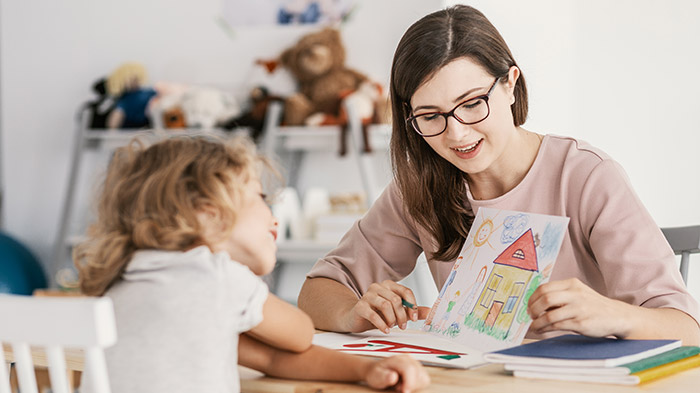If your child recently received an autism diagnosis, you’re probably feeling alone and unsure of what to do next.
In honor of April as Autism Awareness Month, Dr. James Hahn – a pediatrician with St. Elizabeth Physicians’ Aurora office – gives some advice to parents of children with autism:
1. Speak up.
This is for parents who haven’t received an autism diagnosis for their child yet but simply suspect something might be not right with their child’s development or behavior, which is where most autism diagnoses begin, Hahn said.
“The earlier we can identify problems and the earlier kids can get the treatment they need, the better kids do,” he said, “so if you don’t think something is normal, bring it up, speak up, and partner with your pediatrician to get help with a diagnosis, with support, with referrals to specialists and to community resources.”
2. Educate yourself.
Once you’ve armed yourself with all of the (reputable) information you can find out there about autism, you also need to learn everything you can about the services that are available, Hahn said.
Every state has early intervention programs, but every community is different in terms of therapies and services offered, so find out what’s available to you where you live.
Also, Hahn said, reach out to other parents and families who have autistic children.
“I think this is one area that’s exploding with autism because we’re seeing the incidence of diagnoses increasing and more and more support groups are popping up,” he said.
You can find support online, too.
“For many parents, hearing the diagnosis might make them feel totally lost, but talking with other families who have already navigated the system is helpful,” Hahn said. “You can ask them where you should go, who you should talk to, what’s in place at the school and what’s in place in the community.”
3. Be wary of treatment options.
Just because a complementary or alternative treatment option doesn’t have scientific literature or randomized controlled trials to back it up, it doesn’t mean it wouldn’t be helpful for your family or your autistic child, Hahn said, but you should talk with your pediatrician first before starting any non-traditional therapies.
“Many alternative treatments are benign and I can give a green light without much thought,” he said, but some can have harmful side effects. Also, therapies that involve changes to a child’s diet could cause nutritional deficiencies and those would need to be addressed.
“Have an open dialogue with your pediatrician before starting other kinds of therapy,” Hahn said.

